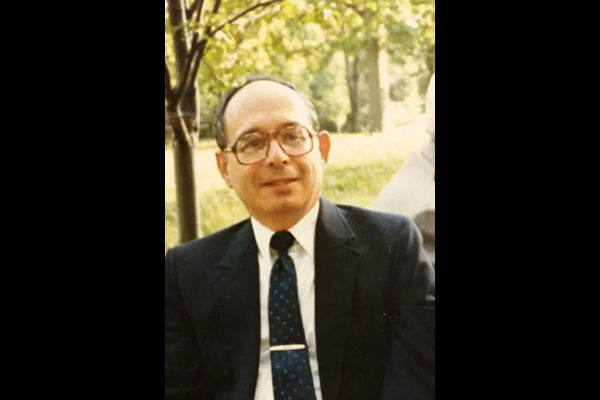Chester Lapa

“All his life, my great uncle Chet wanted to return to Doncols, the village where he was wounded. As a member of the Greensburg, Pennsylvania, Veterans of the Battle of the Bulge, he had an opportunity to return to Belgium and Luxembourg for the 70th anniversary of the Battle.
Outside of Berle, Chet, his wife Agnes and daughter, Mary Beth Happ, met local historian Norbert Morbé, who spent the day recounting the mission of the 357th Regiment of the 90th Division. As a parting gift, Morbé gave my great uncle a WWII-issued New Testament with a rosary hanging from it. His promise to the Blessed Mother in Doncols had come full circle, which he and his family recognized with tears.
Uncle Chet died in May 2014, still praying the rosary daily.”
– Andrew Worthy ’10
Chester Lapa, remembered by his great nephew, Andrew Worthy
Wounded in battle, Chester Lapa prayed to live; 70 years later, he returned to Europe and was given a rosary.
Chester Lapa received his draft notice in January 1944, two months after turning 18. He was sent to Camp Van Dorn in Mississippi to train with the 63rd Infantry Division. In December 1944, he was sent to Marseilles, France, where his division fought in the Alsace-Lorraine region until he was sent to the 90th Division as a replacement. The 90th had well-trained soldiers who had been fighting since D-Day, and he credited them with teaching him combat survival skills.
Most of Lapa’s fighting was in the Ardennes on hills and in forests during the coldest winter Europe had seen in 50 years. In Luxembourg, his division’s 357th Regiment took Berle and in a battle a mile away in Doncols, Chet, his feet frozen, was wounded by shrapnel. During that battle, he promised the Blessed Mother to say a rosary every day if he survived. He did, and recuperated in a hospital in Cardiff, South Wales, United Kingdom, for three months.
After recovering, Lapa was sent back to Reims, France, and worked with the 22nd Finance Disbursing Section. He worked as a clerk handling GIs’ monthly pay in a building across the street from General Eisenhower’s headquarters. He was discharged in May 1946 and arrived home on Mother’s Day to the delight of his grandmother who had raised him.
Lapa’s brother and two uncles also served during WWII.